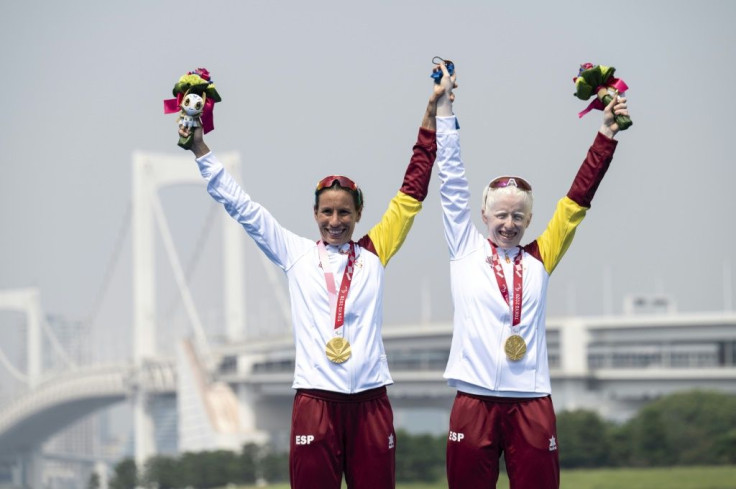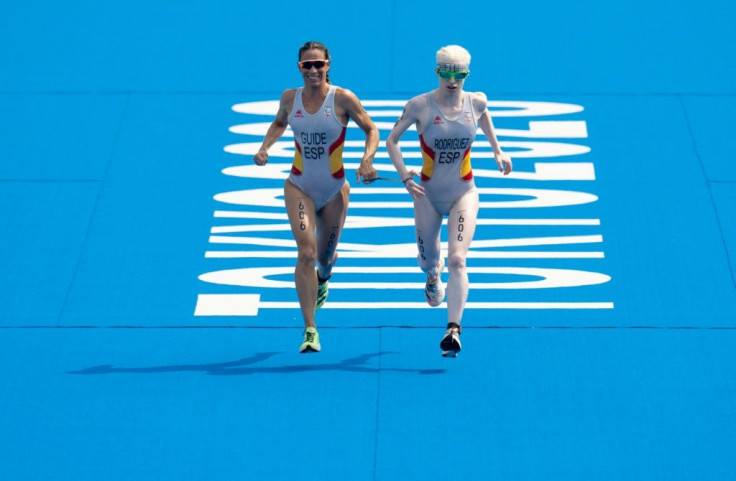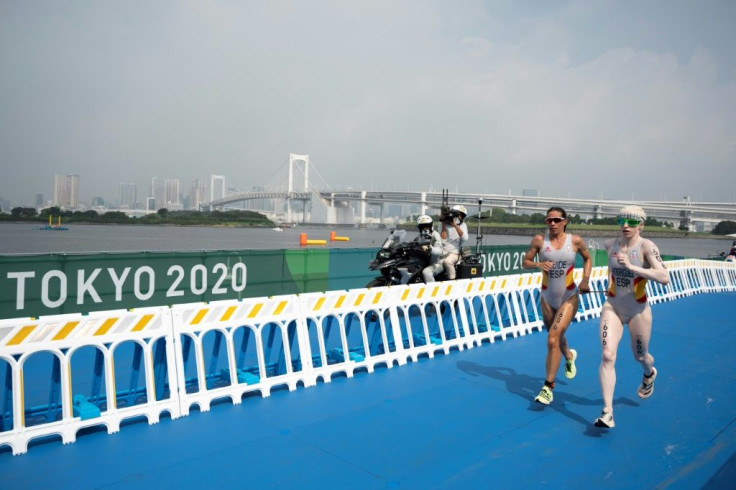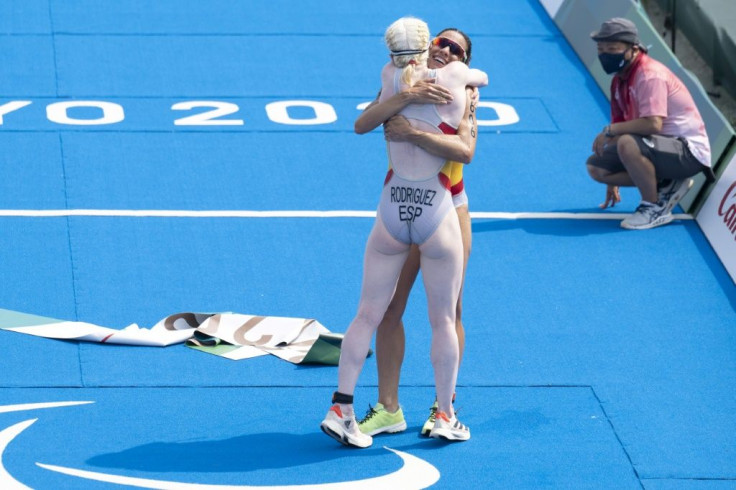Paralympic Triathlete Who Helped Spain Fight Covid Wins Gold
During Spain's tough lockdown last year, Paralympic triathlon champion Susana Rodriguez trained furiously at home and helped fight the coronavirus in her job as a doctor.
Rodriguez -- who swam, cycled and sprinted to gold in Saturday's PTVI race for athletes with visual impairments -- said working in a hospital meant she "knew Covid was very serious, since the very beginning".
In the fraught early days of the pandemic, when she was on the phone lines to assess people with symptoms, her boss would hold a meeting each morning.

"He gave the new data, and things were going really wrong," the 33-year-old told AFP ahead of her competition at the virus-postponed Tokyo Paralympics.
"I realised that the Games would not be possible before they said they wouldn't be in 2020."
She then put her specialisation in physical medicine and rehabilitation to use by helping patients recover from the most severe infections -- while fitting in hours on her treadmill and exercise bike between shifts.
"I was also afraid of catching Covid," said the athlete, who has albinism and is partially sighted, and competes with a guide.

"For a blind person, we rely a lot on touching things, and when (the pandemic) started, everything turned to distancing, and touch was not the best idea. So it was difficult, especially in the beginning."
Rodriguez, who has competed in para-athletics since she was a child, eventually took a break from her medical career to focus on preparing for victory.
"In the world of sports, this means everything," she told reporters on Saturday after her win, adding that she had "done my homework" by training hard for the race.

Rodriguez will become the first Spanish Paralympian to compete in two disciplines at the same Games when she runs in the women's 1500m T11 on Sunday.
"I will try to relax now and try to recover my legs. I need to keep calm, because this situation (winning gold) gave me a lot of adrenaline," she said on Saturday.

The best way to keep up stamina for back-to-back events is to take things day by day, according to the Spaniard.
"I've been really used to a very stressful schedule in the last year, between Rio and Tokyo, so I am used to focusing on one day, then resting, then the next."
"I'm better in triathlon... but I really love the track," said Rodriguez, who finished fifth in her triathlon category at Rio 2016.
Her guide Sara Loehr also received a gold medal on Saturday, with the pair holding hands and grinning triumphantly on the podium.
Rodriguez says her guide athletes are "my eyes during competition", and "they know me really well. We don't need to speak, because they know if I can push harder or not."
They also help her in the Paralympic Village.
"For example, when you go for dinner or breakfast, they are telling you what food to take. In the end, they are my friends."
Rodriguez faced another challenge in early 2020 when she was diagnosed with and underwent treatment for a genetic heart condition.
"I didn't know if I could keep practising sport at a professional level," she said.
But "the cardiology team from my hospital were very good to me, helping me take decisions... so I can be here in Tokyo, safe, and happy."
Spectators are banned from most competitions at the Games and athletes must stick to strict virus rules.
Despite the difficulties of the pandemic, Rodriguez sees a light at the end of the tunnel as vaccines help reduce the number of seriously ill patients.
"This is taking so long, we have been putting our hopes in many things and it's getting hard," she said.
"But we say hope is the last thing to lose, and I hope in 2022 we can get back to normal life."
© Copyright AFP {{Year}}. All rights reserved.





















